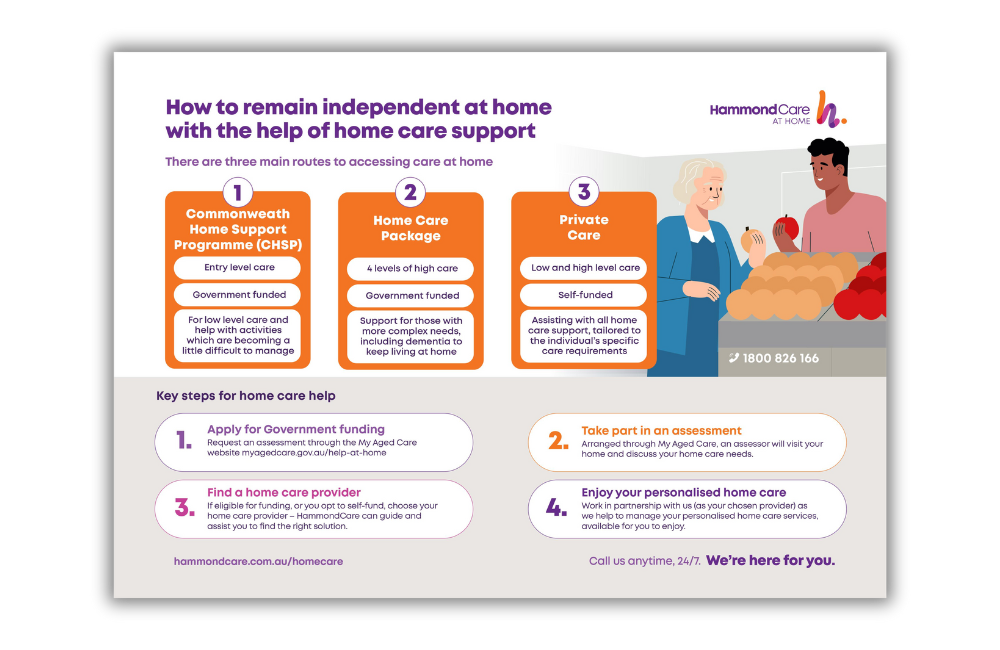All Concerning Home Treatment Solutions for Individuals With Disabilities: NDIS Registered Support
Home care services under the NDIS play a crucial function in sustaining people with impairments. These solutions are developed to boost day-to-day living through tailored aid, varying from individual care to mobility assistance. Comprehending just how to browse these alternatives can be complicated. This introduction explores the various elements of NDIS home care, from available solutions to the selection of service providers, highlighting essential considerations for those looking for assistance. The trip toward empowered care begins below.
Understanding the NDIS and Its Function
The National Special Needs Insurance Coverage Scheme (NDIS) functions as a transformative structure designed to give assistance and solutions for people with handicaps. Established to boost the high quality of life and assurance fair access to vital sources, the NDIS empowers participants by using customized strategies tailored to their distinct demands. It intends to promote freedom, making it possible for individuals to pursue their individual goals and aspirations.Through a structured approach, the NDIS designates financing for numerous supports, consisting of education, employment aid, and community participation. This all-inclusive plan not only concentrates on instant treatment yet also stresses lasting developmental results. By promoting choice and control, the NDIS urges participants to select their recommended provider, guaranteeing that care aligns with their worths and preferences. Inevitably, the NDIS represents a substantial commitment to boosting the lives of people with disabilities, cultivating inclusivity, and developing an extra helpful culture.
Types of Home Treatment Services Available
Numerous sorts of home treatment services deal with individuals with handicaps, largely focusing on personal care aid and break treatment alternatives. Personal care aid supplies vital assistance with everyday tasks, while respite care uses temporary relief for key caregivers. Comprehending these solutions is vital for making sure the health of both individuals with specials needs and their family members.
Personal Care Help
While steering day-to-day live can provide challenges for individuals with impairments, individual care help supplies vital assistance tailored to their unique needs. This kind of home care service incorporates a variety of tasks made to advertise freedom and boost lifestyle. Individual care assistants help with daily tasks such as showering, clothing, brushing, and toileting, making certain people preserve personal health and convenience. They may likewise assist with meal prep work, medication management, and movement support. By offering personalized care, these professionals encourage people to involve even more fully in their daily routines and social activities. On the whole, individual treatment assistance plays a considerable role in cultivating self-respect and autonomy for those with disabilities, permitting them to grow in their home environment.

Break Care Options
Break care acts as a necessary source for family members and caregivers of individuals with impairments, supplying temporary relief from the needs of daily caregiving. This sort of solution can take various forms, including in-home respite care, where trained professionals visit the home to assist with treatment jobs. Additionally, households may select facility-based respite treatment, where people get care in a customized setting, enabling caregivers to pause. Additionally, some organizations supply emergency situation break services for unforeseen situations. These options not just aid alleviate caretaker tension but additionally promote the well-being of people with specials needs by providing them brand-new experiences and social communication. In general, respite treatment plays a vital function in sustaining both caretakers and those they take care of.

Exactly How to Access NDIS Home Treatment Providers
Accessing NDIS home treatment services involves understanding the eligibility criteria set forth by the National Impairment Insurance System. People must browse a structured application procedure to protect the needed support tailored to their demands. This area will make clear both the qualification demands and the steps associated with getting services.
Qualification Requirements Described
To certify for NDIS home care solutions, people need to meet particular qualification standards that assess their requirements and conditions. First, candidates must be aged in between 7 and 65 years and have a long-term and substantial handicap that affects their ability to do daily activities. In addition, they have to be an Australian citizen, a copyright, or hold a Protected Special Group Visa. The NDIS calls for proof of the impairment, commonly through clinical analyses or reports. People ought to demonstrate that they call for assistance to get involved in financial and social life. These standards assure that solutions are guided towards those that really need aid, advertising self-reliance and improved lifestyle for individuals with disabilities.
Application Refine Actions
Can I Choose My Own Support Workers With NDIS?
The private inquired whether they might pick their own assistance employees under the NDIS framework. Typically, participants have the adaptability to select support workers, fostering customized treatment that lines up with their specific demands and choices.
What Takes place if My Requirements Modification After Getting Assistance?
If a person's needs modification after receiving assistance, they must connect these modifications to their provider. Modifications can be made to the treatment plan, making sure that the support stays reliable and pertinent for their circumstances.

Exist Limits on The Number Of Hours of Care I Can Get?
The specific asked about prospective limitations on the variety of care hours obtained. Usually, such limitations might exist based on certain policies or funding setups, highlighting the relevance of evaluating agreements and standards consistently.
Can I Use NDIS Financing for Home Adjustments?
The inquiry of using financing for home alterations develops regularly. Usually, individuals may make use of NDIS financing for required adjustments to their homes, making certain accessibility and safety and security, section upon conference certain qualification standards and guidelines.
How Do I Handle Grievances Regarding My Home Treatment Providers?
To address grievances regarding home treatment solutions, individuals must first record their concerns. Then, they can interact directly with their provider, looking for resolution, or escalate the problem to pertinent oversight bodies if necessary. Home treatment solutions under the NDIS play a critical role in supporting people with impairments. Numerous types of home treatment solutions provide to individuals with specials needs, mainly focusing on individual care aid and respite treatment choices. support at home provider. Individual treatment support offers important assistance with everyday tasks, while break care supplies temporary relief for main caretakers. Households might decide for facility-based break care, where individuals get treatment in a specific setting, permitting caregivers to take a break. Exactly how can family members effectively take care of the monetary facets of home care services for individuals with handicaps?